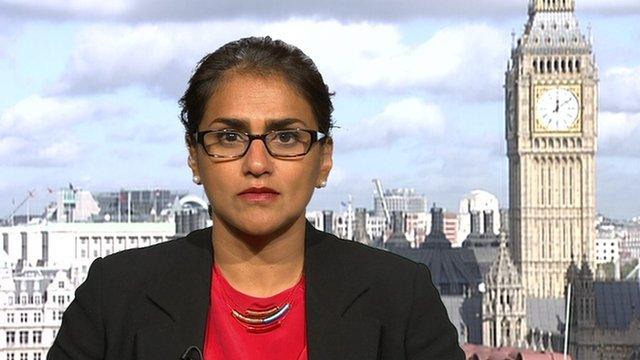Access to Work: Disability scheme 'not reaching people'
- Published
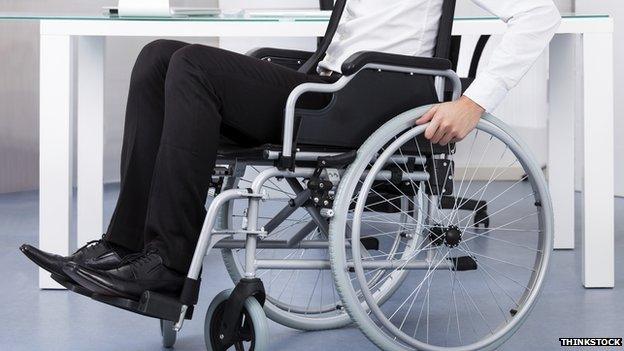
Substantial numbers of disabled people are missing out on government support to help them into work, MPs have said.
The government's Access to Work programme suffers from a lack of funding and publicity, the Work and Pensions Select Committee report found.
Staff from the Department for Work and Pensions often failed to understand the needs of disabled people, MPs added.
The scheme helped 35,000 people get or keep a job this year - up by 5,000 on two years ago, a DWP spokesman said.
Access to Work assists disabled workers by paying for specialist aids, equipment, building adaptations and support workers.
"This week we announced further improvements to the service and we have also committed an additional £15m to ensure even more people can benefit," the spokesman added.
'Profoundly detrimental'
The parliamentary committee found that where Access to Work worked well, it "transformed the lives of disabled people", many of whom would be unable to work without it.
But MPs said DWP staff had displayed "unacceptable lack of disability awareness" and called for staff to be given additional training.
It was not possible to estimate how many people the scheme could help, MPs said, but they stressed there were "substantial" unmet needs.
In one case, the committee found a clampdown on pay for support workers had threatened the employability of deaf British Sign Language (BSL) users.
A "30-hour rule" - which capped the hourly rate for support workers - had a "profoundly detrimental" impact on many people, it said.
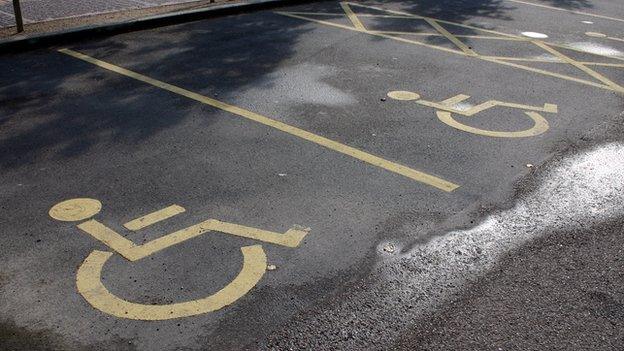
There was also a "misperception" the scheme only provided physical aids, equipment and transport for people with physical disabilities, the report stated.
"Consequently relatively few people with other types of disability and different support needs currently use the programme."
Dame Anne Begg, Labour MP and chairman of the committee, said the scheme should be about "removing barriers for the full range of disabled people who can benefit from the programme".
Only "relatively few" required high costs, she said.
"Access to Work's modest budget risks an approach which seeks to boost the numbers helped by Access to Work by bearing down on the awards of people whose support needs happen to be high cost, including those who use BSL," she added.
The DWP spokesman said 250,000 more disabled people were in work this year compared with last.
"Access to Work and our Disability Confident Campaign are key parts of this, ensuring that disabled people have the same choice of jobs as everyone else," the spokesman added.
Earlier this month, Minister for Disabled People Mark Harper urged every British business to take on someone with a disability for a work placement in 2015.
- Published30 October 2014
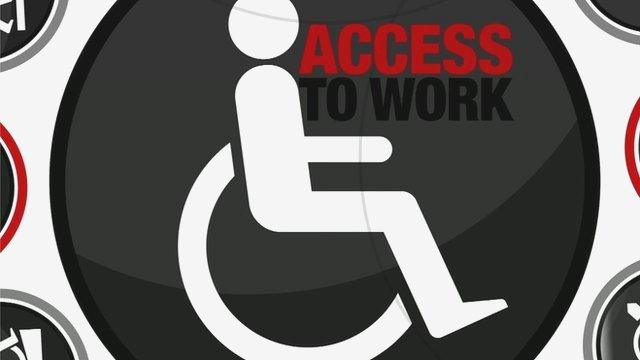
- Published29 October 2014
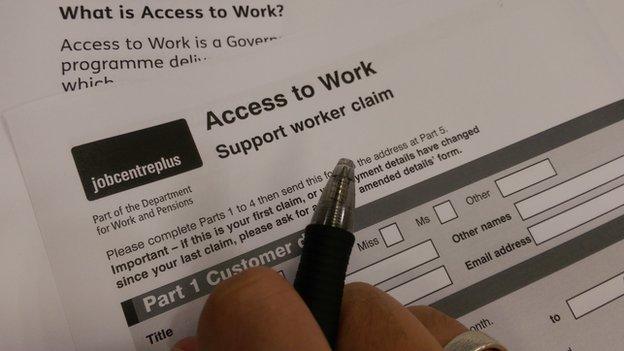
- Published16 October 2014
